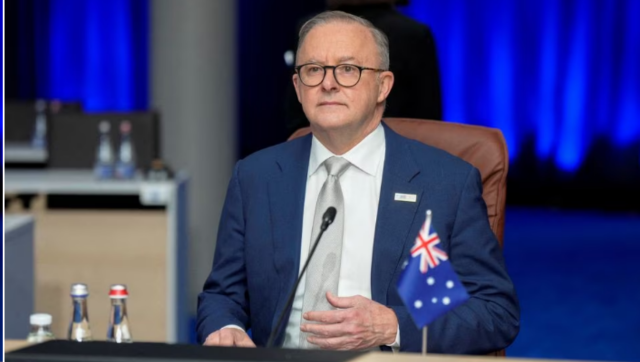Anthony Albanese will become the first Australian prime minister in seven years to visit China when he embarks on a three-day visit starting Saturday. Though details about his itinerary are limited, he is likely to visit Shanghai first and then Beijing. The election of Albanese’s center-left government last year after nine years of conservative rule created an opportunity for a reset of ties between the two countries. From 2016, when Chinese leader Xi Jinping met with an Australian prime minister twice within half a year, diplomatic relations between China and Australia have deteriorated. This resulted in China severing high-level ministerial contacts. Since 2020, a series of official and unofficial trade sanctions have been imposed, significantly impacting Australian exporters. These measures have collectively cost Australia up to 20 billion Australian dollars ($13 billion) annually, affecting exports such as coal, wine, beef, barley, and lobsters. This situation has seen a unique intertwining of business and politics within the bilateral relationship. However, many observers argue that this trade boycott has been detrimental to a China facing economic challenges, while Australia has shown little inclination to yield to what is perceived as Beijing’s coercive tactics. “It’s in Australia’s interest to have good relations with China,” Albanese told reporters last month when he announced the trip. But Albanese’s government is also deepening security ties with the United States, notably with the AUKUS agreement involving Britain that will provide Australia with a fleet of submarine powered by US nuclear technology. Shi Yinhong, an international relations professor at Beijing’s Renmin University of China, told AP that the Chinese wanted to improve trade relations after a “largely ineffective de facto boycott.” But Shi noted that not all the trade barriers had been lifted, although Australia is confident that crippling tariffs on wine will be removed within months. The wine trade had been worth AU$1.2 billion ($771 million) a year. “Australia still has some major behaviors that China surely feels are punishable,” Shi told AP. Australia’s first serious mistakes in Chinese eyes came in 2018 with moves that were seen as emphasising China as a security threat. The Australian Parliament passed national security legislation that banned covert foreign interference in domestic politics and made industrial espionage for a foreign power a crime. Two months later, the government banned Chinese-owned telecommunications giant Huawei from rolling out its 5G network in Australia due to unspecified security concerns. The Chinese trade barriers followed the Australian government’s demands for an independent inquiry into the origins of COVID-19 and China’s responses to the pandemic. China has accused Australia, the US and others of “politicising” the issue. Albanese maintains he has made no concessions to China to achieve more stable relations, citing the release last month of Australian journalist Cheng Lei who had detained in China for three years in a case concerning state secrets. But just before his planned trip was announced, Albanese’s government said it will not cancel a Chinese company’s 99-year lease on Darwin Port despite U.S. concerns that foreign control could be used to spy on its military forces. Albanese had criticized the lease since it was signed in 2015, but some security analysts interpreted the decision to let Shandong Landbridge Group keep the lease as a concession to China ahead of his visit. Australia is trying to find the right balance between security concerns and the need to have a peaceful region and productive economic ties with China, said Jude Blanchette, a China expert at the Center for Strategic and International Studies in Washington. “That’s the balance that we’re all cursed with finding,” Blanchett said, likening Australia’s position to that of Japan and South Korea. Blanchette said that the growing talk of “de-risking” in Australia, or not depending too heavily on one country economically, is likely to be a concern for China in the talks. “I think what the Australians are going to say is … we still want to have a strong trading relationship with you but you’re going to see a realignment of capital and technology to other markets as well,” he said. Australia’s efforts to diversify trade away from China, its largest trading partner, has struck obstacles. Australian Trade Minister Don Farrell announced this week that negotiations on a free trade deal with the European Union had collapsed. The impasse remained despite Europe’s eagerness to tap into Australia’s stocks of critical minerals and rare earths to reduce their own dependency on China. Meanwhile Farrell expects the cost of what Australian euphemistically calls “trade impediments” with China will soon diminish from a peak of AU$20 billion ($13 billion) a year to AU$1 billion ($643 million). Despite the political upheaval between Beijing and Canberra since an Australian prime minister’s last state visit, the value of Australian goods and services exported to China had more than doubled, said James Laurenceson, director of the Australia-China Relations Institute at the University of Technology Sydney. Australian government data valued annual exports for the year to August at AU$194 billion ($125 billion). In 2016, that figure for the same period was AU$96 billion ($71 billion at the then-exchange rate, $62 billion at the current rate). Wang Yiwei, a Renmin University international relations professor, said China wanted stable diplomatic relations with Australia to underpin economic relations. “China still hopes that there will be a proper distinction between security and economy,” Wang said. With inputs from agencies
Anthony Albanese will become the first Australian prime minister in seven years to visit China when he embarks on a three-day visit starting Saturday
Advertisement
End of Article


)

)
)
)
)
)
)
)
)



